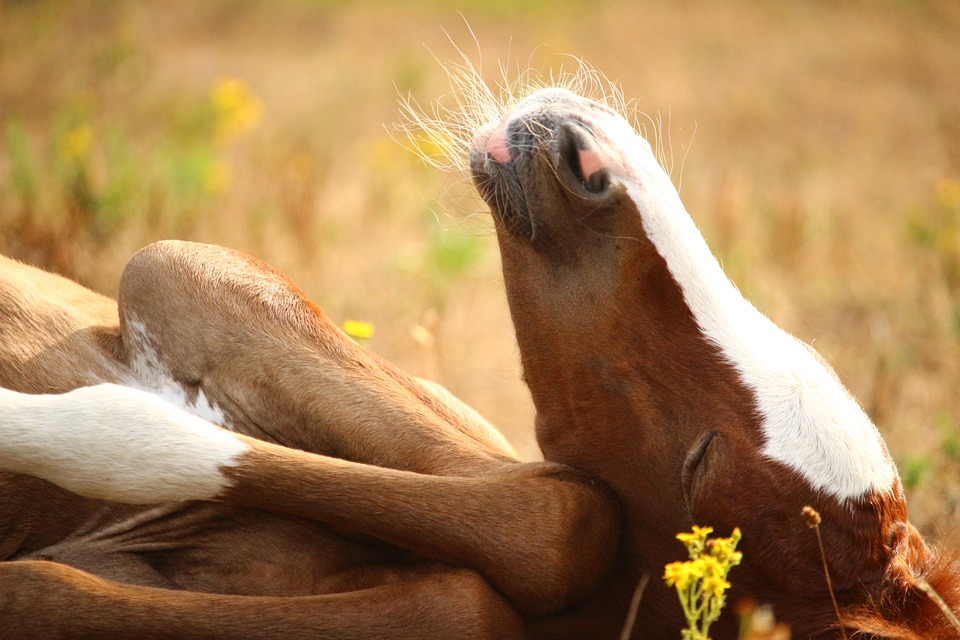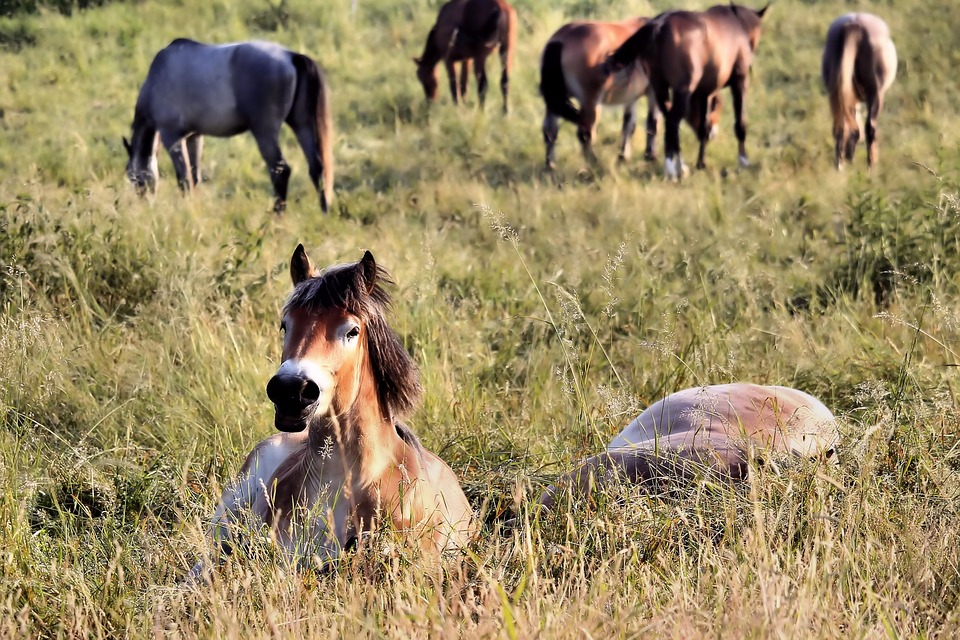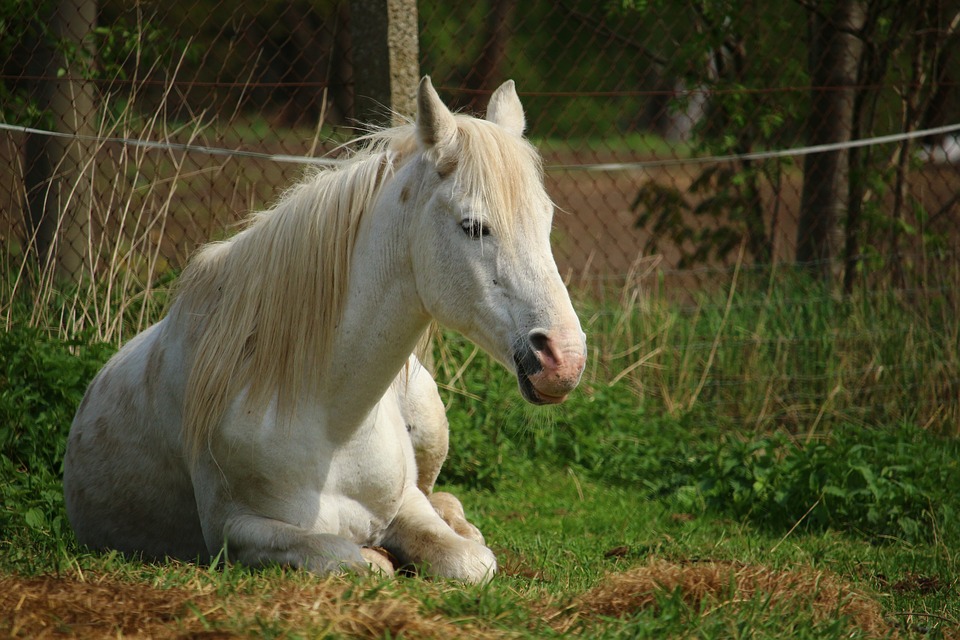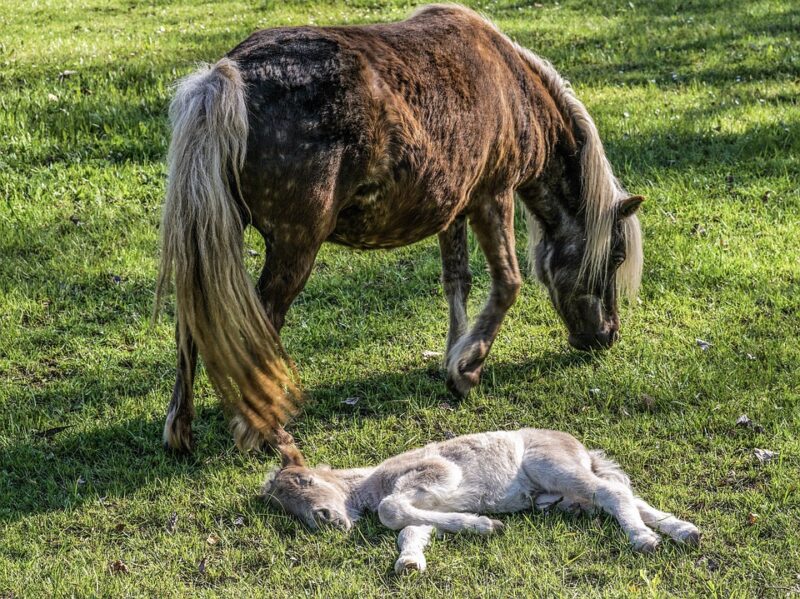
Sleep and rest are vitally important for horses just like for people. While humans require hours of uninterrupted sleep each night, horses have different needs that match their own activity patterns. Just like us, they have multiple phases of sleep that range from drowsing all the way to deep, rapid-eye-movement sleep.

Horses don’t need as much sleep as people, but like us, they get most of their deep-sleep time at night. They spend about two to four hours per day sleeping but need only about a half hour of the deepest phase of sleep per night, and they don’t need all their sleep at one time. Rather, horses rest by standing motionless in their pasture (which is why some people still think that horses sleep while standing up) and occasionally lie down to take naps in between getting up to spend more time grazing.

Horses at rest are calm and relaxed, and a restful environment is a healthy one for horses. Physical and mental rest is important for recovery for horses in training or those overcoming illness or injury. Promoting good sleep and rest behavior in horses ensures that you’re giving your equines the opportunity to maintain and heal themselves whenever they need to.

To encourage good sleep patterns in horses, pay attention to herd dynamics and make sure that all the horses in the herd have stable relationships and herdmates that they trust. Horses must feel safe and secure in order to lie down and sleep, and equine friends help them feel safe enough to rest. Making sure that pasture design allows for enough space that horses can seek out desirable locations to sleep is also important, and so is the need for soft substrates that make it easier for horses to lie down, especially for older or less mobile individuals. In a stable setting, enforcing quiet hours can help create the restful environment that many stalled horses require in order to lie down and sleep, as can trying different bedding types.